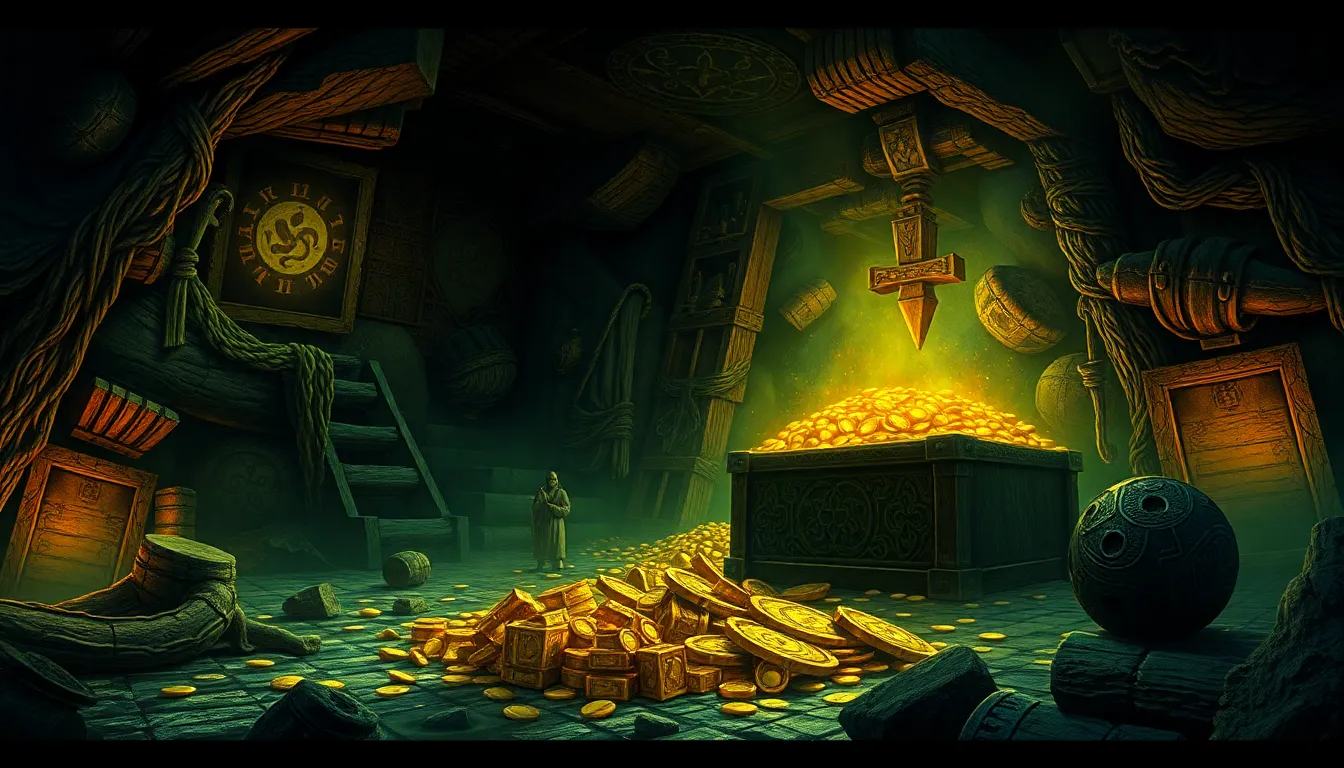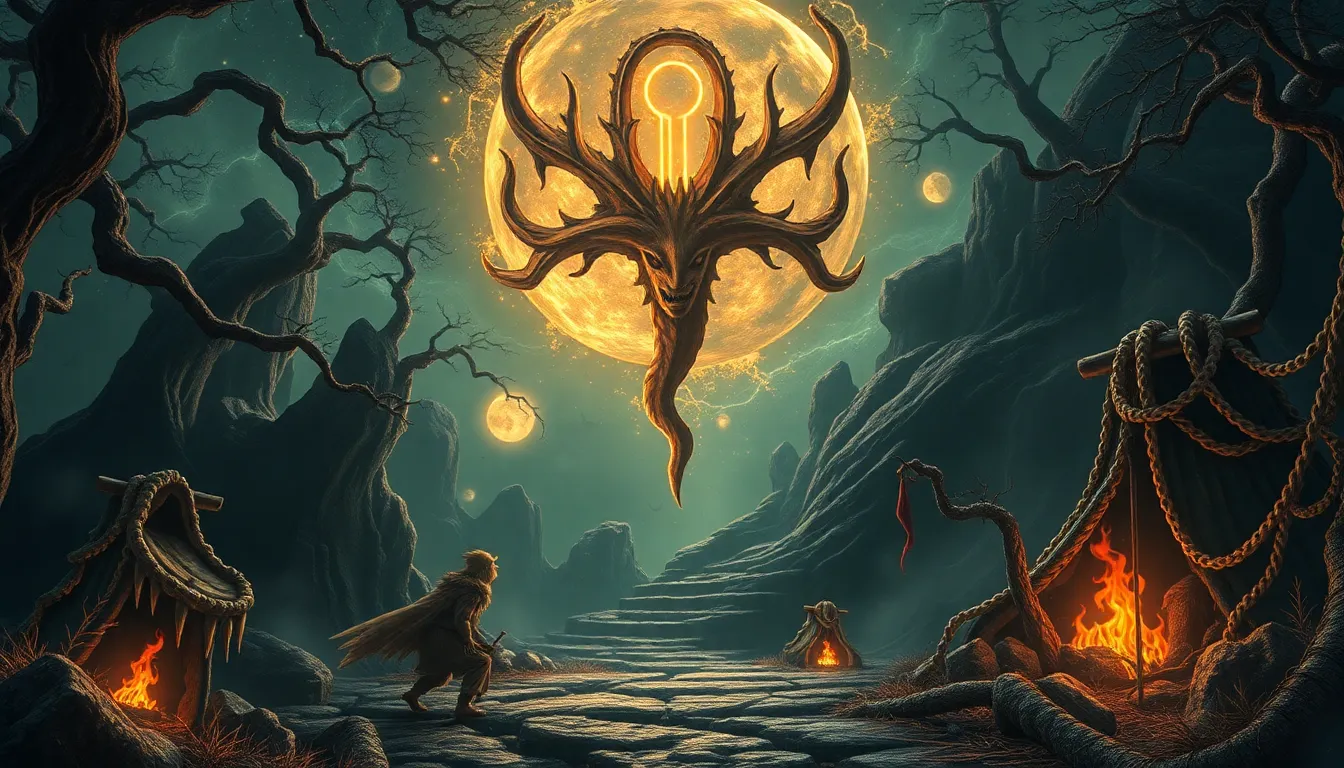The Quest for the Lost Treasure: Myths of Buried Riches
I. Introduction to Treasure Myths
Treasure myths and legends are captivating tales that speak of hidden wealth, lost artifacts, and the adventures of those who seek them. These stories often intertwine with history and culture, creating a rich tapestry that intrigues treasure hunters and casual enthusiasts alike. The allure of buried riches transcends geographical boundaries, appearing in various forms across cultures, from ancient civilizations to modern societies. This article aims to explore some of the most famous treasure myths, shedding light on their historical context, cultural significance, and the ongoing quest for lost treasures.
II. Historical Context of Treasure Hunting
The phenomenon of treasure hunting has roots that stretch back through history, often emerging during periods of social upheaval or exploration. During the Age of Discovery, for example, treasure hunting surged as explorers returned from new lands with tales of gold and riches. Notable treasure seekers such as:
- Juan Pizarro, who searched for Incan gold
- Henry Morgan, the infamous pirate
- William Kidd, known as Captain Kidd
These figures not only sought wealth but also shaped the narratives surrounding treasure hunting. The impact of these quests extended beyond individual gain, influencing local economies and cultures. Towns often sprang up around rumored treasure sites, leading to booms in trade and tourism.
III. Famous Treasure Myths Around the World
Across the globe, numerous treasure myths have captured the imagination of many. Some of the most famous include:
A. The Oak Island Mystery: Canada’s Enduring Enigma
Located off the coast of Nova Scotia, Oak Island has been the subject of treasure hunting for over 200 years. The legend speaks of a hidden treasure, possibly linked to pirates or even the Knights Templar. Despite numerous excavations, the island remains shrouded in mystery, drawing treasure hunters and curious tourists alike.
B. The Lost Dutchman Mine: Tales from the American Southwest
This legendary gold mine is said to be hidden in the Superstition Mountains of Arizona. The myth revolves around a German immigrant, Jacob Waltz, who supposedly discovered the mine in the 19th century. Many have ventured into the mountains seeking their fortune, often with tragic results.
C. The Treasure of the Flor de la Mar: A Sunken Fortune in Southeast Asia
The Flor de la Mar was a Portuguese ship that sank off the coast of Malaysia in 1511, carrying an immense treasure. The location of the wreck remains unknown, fueling treasure hunts and speculation about the lost riches that lie beneath the waves.
IV. Cultural Significance of Treasure Myths
Treasure tales often hold deep cultural significance, featuring prominently in folklore and mythology. These stories serve several purposes:
- They preserve cultural heritage and traditions.
- They provide moral lessons about greed, courage, and perseverance.
- They reflect societal values and aspirations, often highlighting the quest for wealth and success.
Storytelling plays a vital role in keeping these legends alive, as each generation adds its interpretations and embellishments, enriching the original narratives.
V. Modern Treasure Hunting: Tools and Techniques
Today, treasure hunting is transformed by technology. The advent of advanced tools and techniques has made it more accessible to enthusiasts. Some notable advancements include:
- Metal Detectors: These devices have revolutionized the way treasure hunters search for hidden items, allowing for more precise detection of metallic objects.
- Underwater Exploration: Submersibles and sonar technology have opened up new frontiers in treasure hunting, particularly for sunken ships.
- Social Media and Crowdsourcing: Platforms like Facebook and Reddit have created communities where treasure hunters can share tips, experiences, and even collaborate on expeditions.
VI. The Psychology of Treasure Hunting
The allure of treasure hunting extends beyond the tangible rewards. Many people are drawn to the thrill of adventure and the possibility of uncovering lost riches. The psychological aspects include:
- Adventure and Exploration: The excitement of searching for treasure taps into our innate desire for adventure.
- Lure of Wealth: The prospect of finding valuable items can be a powerful motivator.
- Success and Failure: The emotional highs of success and the lows of failure can deeply impact treasure hunters, making it a psychologically complex pursuit.
VII. Legal and Ethical Considerations
Treasure hunting is not without its legal and ethical dilemmas. Various laws govern treasure hunting and salvaging, including:
- Salvage Rights: Determining who has the legal right to claim found treasures can lead to disputes.
- Cultural Heritage Laws: Many countries have laws protecting archaeological sites, complicating treasure hunts.
Case studies of legal battles, such as the dispute over the treasure of the Atocha, highlight the complexities involved in claiming found treasures, raising questions about ownership and cultural heritage.
VIII. Famous Hoaxes and False Claims
Throughout history, numerous treasure hoaxes have misled enthusiasts and fueled myths. Some notable examples include:
- The “Cursed Treasure of the Oak Island” was deemed a hoax by some skeptics.
- The “Lost Treasure of the USS Central America” was shrouded in dubious claims.
The effects of misinformation have had lasting impacts on treasure hunting culture, illustrating the importance of skepticism and thorough research.
IX. The Future of Treasure Hunting
As technology evolves, so does the practice of treasure hunting. Emerging technologies such as AI and improved scanning methods promise to enhance the search for lost treasures. In the digital age, new myths and legends are likely to arise, fueled by the internet and social media. The fascination with treasure hunting shows no signs of waning, as each generation continues to seek adventure and the thrill of discovery.
X. Conclusion: The Enduring Allure of Lost Treasure
The myths of lost treasures are more than just tales of wealth; they reflect our deepest desires, fears, and aspirations as a society. They teach us about history, culture, and the human spirit’s relentless quest for discovery. As we continue to explore these legends and share our own experiences, we keep the spirit of adventure alive for future generations.
We invite readers to share their own treasure hunting experiences and the legends that have inspired them. What treasures have you sought, and what stories do you hold dear?




